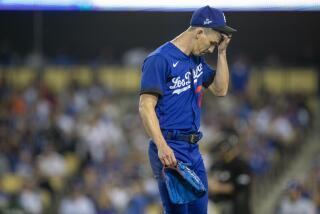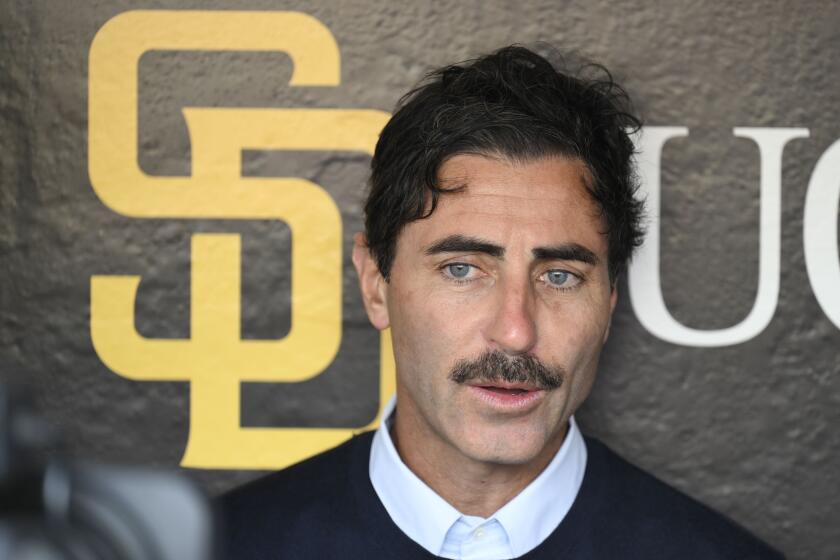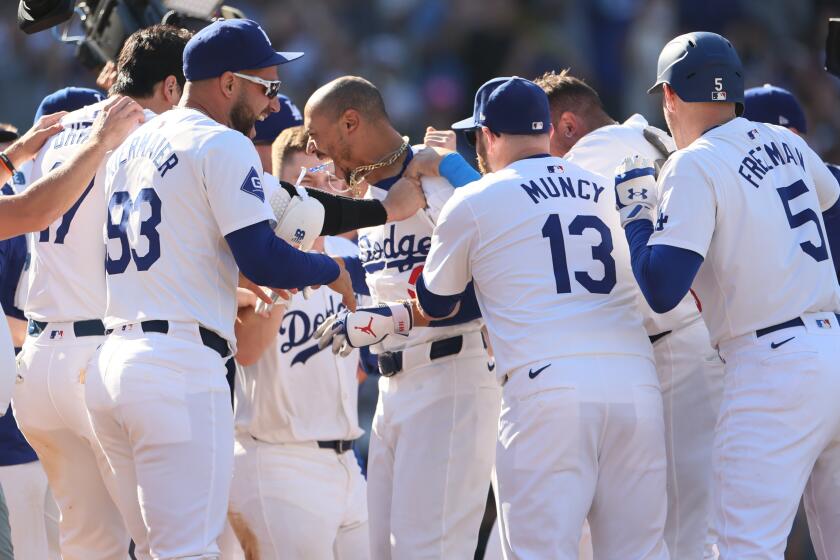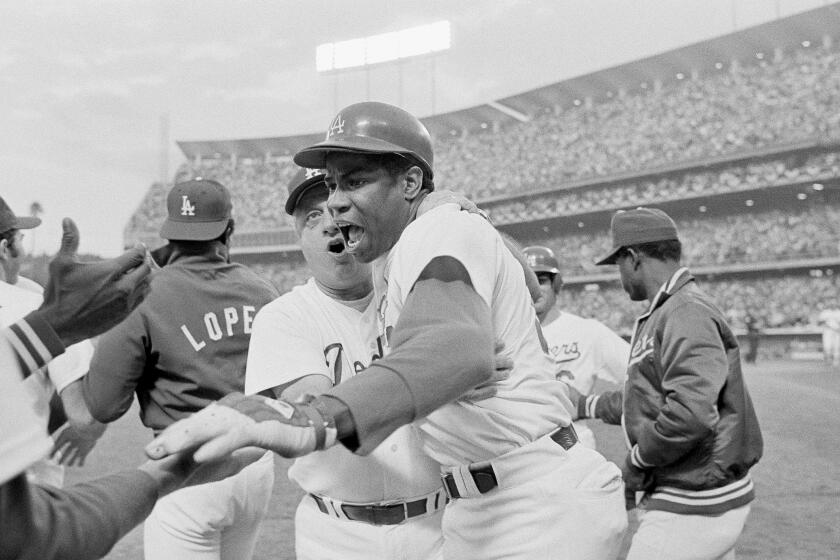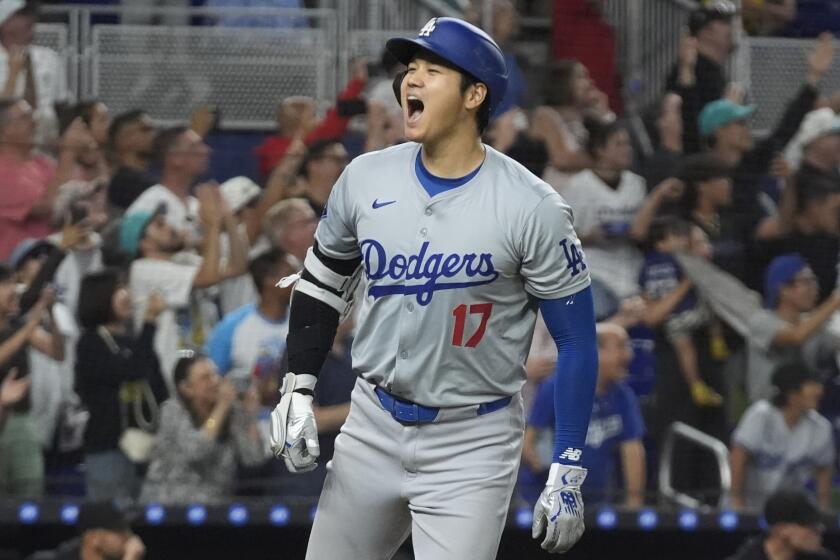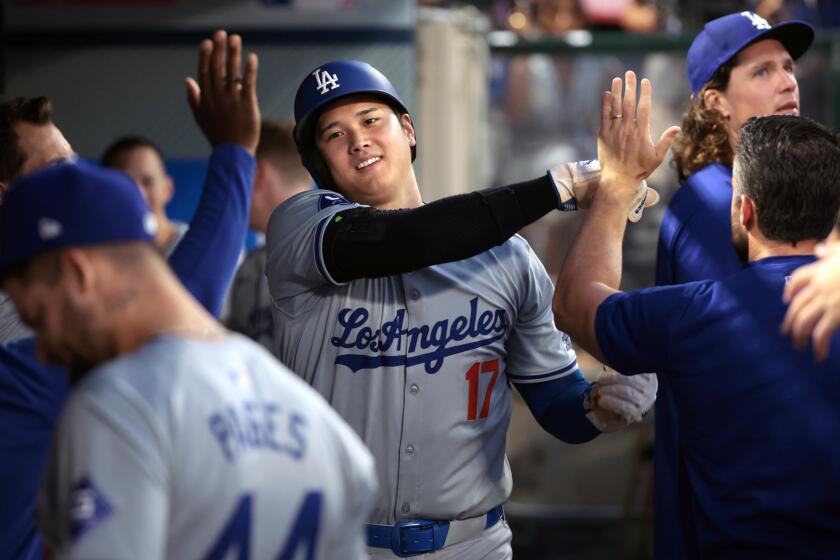Peter O’Malley says Frank McCourt needs to sell the Dodgers
Peter O’Malley on Thursday called upon Frank McCourt to sell the Dodgers, saying “the current Dodger ownership has lost all credibility throughout the city” and that local investors are needed to restore the luster of the city’s cherished baseball team.
“In my judgment,” O’Malley said, “it would be best for the franchise and the city if there was new ownership.”
O’Malley, whose family owned the Dodgers for 47 years, never referred to McCourt by name in an interview with The Times. He had remained virtually silent amid the high-profile divorce of McCourt and his estranged wife, Jamie.
He said he is not interested in returning to ownership but would be willing to smooth the transition for potential new owners on what he called a “short-term” basis.
“For many years, the Dodgers have been one of the most prestigious institutions in our city and throughout professional sports,” O’Malley said. “Sadly, that is not the case today.”
McCourt responded through a statement from his spokesman, Steve Sugerman.
“Frank has made it abundantly clear he is the long-term owner of the Dodgers,” Sugerman said, “and he looks forward to the day when his four boys own and operate the team.”
The McCourt divorce trial is set to resume Monday in Los Angeles Superior Court, with Frank contending the Dodgers are his sole property and Jamie arguing the team should be considered community property.
“The issue is not community property,” O’Malley said. “The issue is that, from what we have all learned in the documents filed in the proceeding, we now know how they have used the Dodgers.”
In court papers, Jamie McCourt’s lawyers have said the couple took $108 million in personal distributions from the Dodgers from 2004 to 2009, using revenue from the team “as if it was their personal ATM or credit card” to support a lavish lifestyle that included side-by-side homes in Holmby Hills and Malibu.
In civic appearances and media interviews, Frank McCourt has said fans have supported his ownership, citing the Dodgers’ four playoff appearances in six seasons. The Dodgers had not appeared so often in postseason play since O’Malley’s late father, Walter, moved the team to Los Angeles in 1958.
The Dodgers won the World Series six times under O’Malley ownership — five times in Los Angeles — but they did not win a playoff game between 1988 and 2004. Peter O’Malley sold the team to Fox for $311 million in 1998; Fox sold to McCourt for $430 million in 2004.
“The Dodgers are a jewel and earned that reputation not just based on winning games,” O’Malley said, “but on how the franchise was managed.”
In the divorce trial, McCourt testified that he introduced Jamie to Los Angeles as a co-owner not because she had that legal standing but in an effort “to hearken back to the O’Malley days” of family ownership.
In 47 seasons, the O’Malleys employed four managers — Charlie Dressen, Walter Alston, Tom Lasorda and Bill Russell. If Joe Torre leaves, the Dodgers next spring would have their fourth manager in eight seasons since McCourt bought the team.
“I have a keen interest in helping to stabilize the Dodgers,” O’Malley said. “Stability starts at the top. The organization cries out for stability at this time.”
O’Malley, 72, said he was not speaking out in an effort to return as owner or president of the Dodgers. He said he had no interest in any permanent role with the team but would be willing to work with potential new owners during a transition period, if asked.
“The Dodgers need to be owned by a small but diverse group of Los Angeles people who understand the culture of the organization and the importance of the Dodgers in this city,” he said.
“If there’s a role for me — temporarily, short term — to accomplish that, I would devote as much time and energy as necessary.”
McCourt moved from Boston to Los Angeles after buying the Dodgers, his path paved in part by a scarcity of local interest. If the Dodgers go up for sale, O’Malley said, local investors and Major League Baseball must step forward, in what he called the best interests of the city and the team.
“Baseball and the city have got to get it right this time,” he said.
bill.shaikin@latimes.com
More to Read
Are you a true-blue fan?
Get our Dodgers Dugout newsletter for insights, news and much more.
You may occasionally receive promotional content from the Los Angeles Times.


